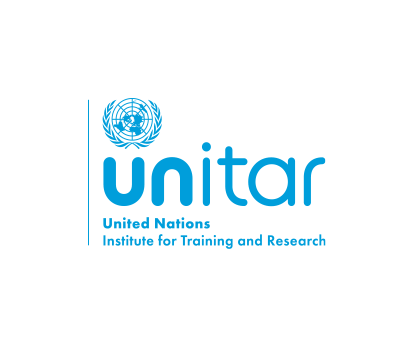
CIFAl Jeju —INCLUSIVE PATHWAYS FOR CO-CREATING SOLUTIONS TO EMPOWER PEOPLE WITH DISABILITIES
It has been said that people with disabilities are often more likely to be exposed to risks than people without in various aspects. Economically, they often face high unemployment rates, leading to higher poverty rates, poorer living conditions, less access to nutritious food, and fewer opportunities for education and skill development. In terms of healthcare, individuals with disabilities may encounter barriers due to physical communication, and systemic obstacles, with their higher likelihood of chronic health conditions being exacerbated by poor access to appropriate care. Socially, stigma and discrimination can lead to isolation, limiting crucial social support networks during crises. Additionally, environmental barriers such as inaccessible infrastructure in public spaces, housing, and emergency services can increase their life-threatening risks during emergencies like natural disasters. Numerous surveys illustrate these challenges where 80% of persons with disabilities live in developing countries, while 20% of the world’s poorest people have some kind of disability, tending to be regarded in their own communities as the most disadvantaged. Some persons with disabilities die up to 20 years earlier than those without disabilities , and persons with disabilities have twice the risk of developing conditions such as depression, asthma, diabetes, stroke, obesity or poor oral health. In particular, certain groups with disabilities including women and girls, refugees and internally displaced persons are more susceptible to exclusion from mainstream society and deprived of their basic rights. The WHO has thus called for greater attention to violence against women with disabilities, highlighting the current indifference to this issue. Also, the UN analyzed that less than 5% of children and young persons with disabilities have access to education and training. Thus, it is imperative for both government and private sectors to offer need-based support to the vulnerable populations to facilitate their integration into society. For example, the concept of Universal Design—entailing the creation of products that are accessible to individuals with a wide range of abilities, disabilities, and other characteristics—has been adopted in the construction of public infrastructure. As we approach the targeted deadline of 2030 for achieving the Sustainable Development Goals (SDGs), we have come to realize that inequality faced by people with disabilities is a significant concern among overlooked areas. According to the WHO, an estimated 1.3 billion people experience disability, which represents 16% of the world’s population. Korea is actively implementing various policies to enhance income security and employment opportunities for persons with disabilities. Plans for 2024 include an increase in disability pensions, the creation of 2,000 new jobs for persons with disabilities and expand support for children with developmental disabilities. Additionally, there are efforts to improve accessibility to public facilities and raise public awareness through events such as the “Accessibility Improvement Day”. In this context, UNITAR CIFAL Jeju will organize a Workshop titled "Inclusive Pathways for Co-Creating Solutions to Empower People with Disabilities." The Workshop aims to highlight the difficulties faced by people with disabilities and find ways to address their vulnerabilities. The Workshop will be comprised of expert lectures by domestic and international speakers and best practice sharing with participants. The workshop will also explore how to include vulnerable groups with disabilities into our society through efforts to protect women and girls with disabilities from violence, improve inclusion to education for children with disabilities, and improve living conditions for refugees and internally displaced persons with disabilities. Policies and best practices implemented in Korea targeting people with disabilities will also b
After this event, participants will be able to: ● Identify and analyze physical, social, and attitudinal barriers that hinder the full participation of people with disabilities in society. ● Develop an understanding of need-based empowerment concepts for people with disabilities, with particular focus on the most vulnerable groups. ● Share best practices in implementing inclusive practices and solutions and apply them in their respective fields or organizations.
[Session 1] (Overview) Global Advocacy and Action: An Introduction to International Efforts Supporting Individuals with Disabilities and Challenges Worldwide [Session 2] (Women and girls) Violence against Women with Disabilities [Session 3] (Children) Inclusive Education for Children with Disability [Session 4] (Refugees and Internally Displaced Persons) Dire Living Environment for Refugees and Internally Displaced Persons (IDPs) with Disabilities [Session 5] Navigating Disabilities Support in Korea: Policies, Infrastructure, and Institutional Insights [Session 6] Solutions for Inclusion of People with Disabilities – Universal Design
Training will be comprised of online lectures and presentations by experts.
This event is open to: ● Representatives from diverse sectors who are actively involved in empowering vulnerable groups with disabilities, ● Individuals with an interest in the inclusion of people with disabilities into the society.

